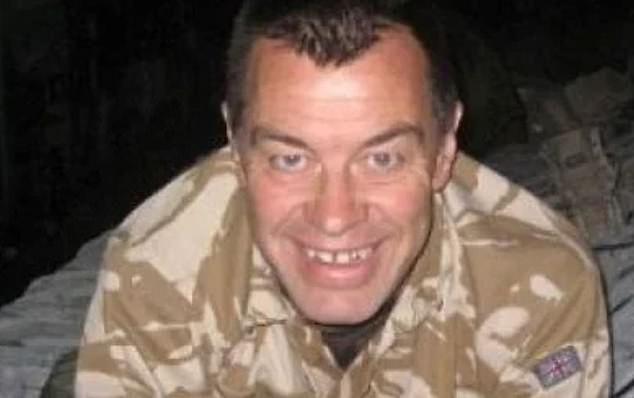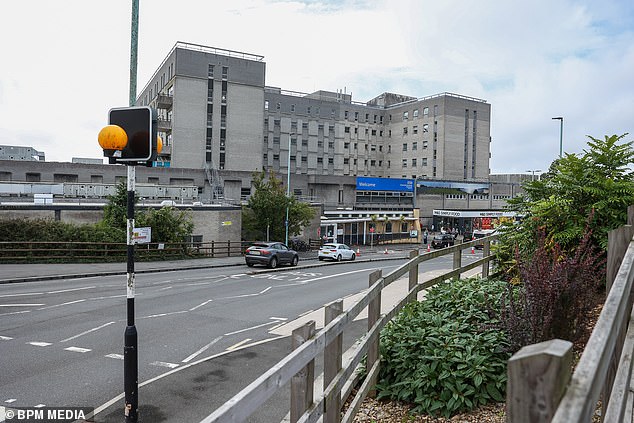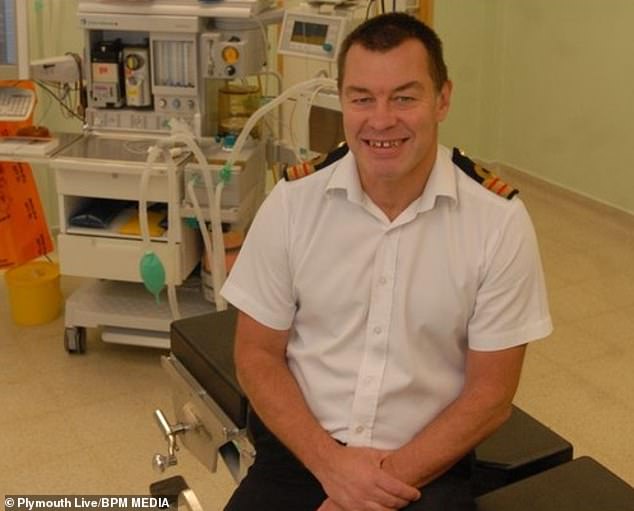A Navy surgeon who operated on a 12-year-old boy’s penis without his consent while performing a hernia operation has been suspended for six months.
Commander Anthony Lambert told the boy’s parents he had done it without consulting them because it was “a bit nosy” and noted that it “didn’t seem normal.”
The “extremely senior and respected practitioner”, who served in the Royal Navy for 36 years and rose to the rank of Surgeon-Commander, had been performing an umbilical hernia repair on the boy.
Now, after appearing before a Medical Tribunal, he has been suspended for six months for his “deplorable” actions.
The hearing was told that on April 20, 2016, while working at Derriford Hospital in Plymouth, Dr Lambert performed the procedure on the child, referred to only as Patient A, who was unconscious under general anaesthetic.
Commander Anthony Lambert (pictured), who served in the Royal Navy for 36 years and rose to the rank of surgeon-commander, had been performing an umbilical hernia repair on the boy.

Commander Lambert told the boy’s parents that he had done it without consulting them because it was “a little nosy” and noted that “it didn’t seem normal.”
During this, he “performed a preputial adhesions release” on his penis, without the knowledge or consent of either Patient A or his parents.
In an ‘inappropriate’ comment explaining his actions afterwards, he said: ‘….because I’m a bit nosy, I noticed that (Patient A)’s penis didn’t look quite normal*’
Three days after the operation, Patient A’s mother lodged a formal complaint that the procedure had been carried out “without the knowledge or consent of Patient A, Mrs B or her husband”.
At the hearing it was said that in the investigation into his conduct and about that comment in particular, he replied ‘this is the first time in 16 years that I have had a complaint.’
The hearing was told he had been investigated in 2014 for “foul language” used in front of nursing staff, patients and patients’ parents.
In October 2018, a Foundation Year 1 trainee working with Cdr Lambert made a complaint about his conduct, the panel was told.

Derriford Hospital in Plymouth, where Cdr Lambert performed the procedure
Commander Lambert admitted making comments that were “disgusting and abusive”, “aggressive and intimidating”, “intimidating in nature and derogatory towards patients and healthcare professionals”.
He told members he was “devastated by the consequences of his actions” and had carried out the procedure “with the best of intentions”.
It was also heard that the background to this “intemperate behaviour” was the stress suffered as part of his deployment to combat zones.
The panel heard that although Commander Lambert is now “mostly” retired, there “remains a risk” that he may choose to return to practice.
The panel concluded that the decision to complete the examination and procedure “against clear expressions of non-consent” was compounded by Patient A’s young age.
“He noted that he made very limited attempts to find Patient A’s parents after he noticed the abnormality of his penis, and although he entered the waiting room, he did not call them by name,” they said.
They added that Dr Lambert was an “extremely senior and respected practitioner” and that this had been a “single incident in a long and distinguished career”.
However, they continued: ‘The court considered that members of the medical profession would consider the act of a doctor operating on a child without any form of consent, or after an express refusal of consent, to be deplorable. He determined that such actions would bring the medical profession into disrepute.
‘He took the view that the impact it had on Patient A, or some similar adverse outcome, was a foreseeable potential result of an overt breach of trust.
‘The Court concluded that this misconduct was serious: obtaining consent before carrying out a physical procedure or investigation on a patient is a fundamental principle of the medical profession.
‘The Court recalled that Patient A and his parents refused consent to Mr Lambert on two separate occasions.
‘He noted that the procedure was not urgent and (Cdr) Lambert could have waited to ensure parental consent was obtained without posing any risk to the patient.
They added that most doctors in similar circumstances would understand the imperative not to perform the procedure and would regard their actions as “a deplorable breach of trust fundamental to the medical profession in obtaining consent before operating on a patient.”
Therefore, they concluded that this was a serious offense and he was suspended for six months.


